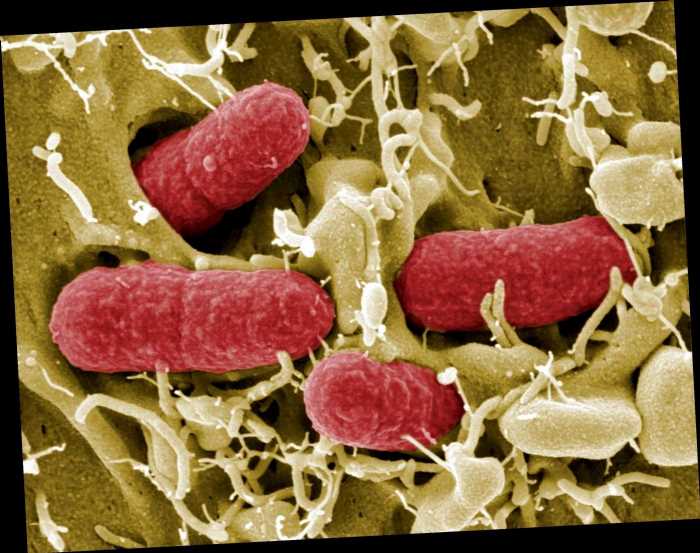PEOPLE not washing their hands after going to the loo is to blame for the spread of superbug E.coli – not food poisoning.
A new study has revealed that poor hygiene puts you at greater risk of getting the potentially-fatal bug than eating uncooked chicken, beef or pork.
And the "likeliest route" of catching E.coli is through poo particles entering your mouth.
Professor David Livermore, who led the study at the University of East Anglia, said: "The great majority of strains of ESBL-E.coli causing human infections aren't coming from eating chicken, or anything else in the food chain.
"Rather – and unpalatably – the likeliest route of transmission for ESBL-E.coli is directly from human to human, with faecal particles from one person reaching the mouth of another."
According to statistics, E.coli is the most common cause of blood poisoning, with more than 40,000 cases each year in England alone.
Highly resistant strains
Around 10 per cent of these cases are caused by highly resistant strains which produce an enzyme known as Extended Spectrum Beta-Lactamase (ESBL).
These bacteria normally live in the intestines of healthy people and animals, and most varieties are harmless to humans.
Despite this, some strains can cause food poisoning, urinary tract infections and, in the worst case scenario, bloodstream infections.
In the study, published in Lancet: Infectious Diseases, Professor Livermore and his colleagues sequenced the genomes of ESBL-producing E.coli.
Sewage samples
They analysed 20,000 human faecal samples and 300 blood samples plus hundreds of sewage samples, animal slurry and meats including beef, pork and chicken – as well fruit and salad.
One strain – ST131 – was seen in the majority of human samples from all three sources.
However, the strains found in meat, cattle and animal slurry were mostly different.
This meant there was "little crossover" of ESBL-E.coli from animals to humans, Professor Livermore and team said.
Food poisoning bacteria
Despite this, Professor Livermore emphasised that maintaining food hygiene was still important.
And he added that people should handle raw meat carefully, not least because there are other strains of food poisoning bacteria that come through the food chain.
However, he said: "Here – in the case of ESBL-E. coli – it's much more important to wash your hands after going to the toilet.
"It's particularly important to have good hygiene in care homes, as most of the severe E. coli infections occur among the elderly, and people may need help going to the toilet."
Prof Neil Woodford, of Public Health England, said: "In order to tackle antibiotic resistance, we not only need to drive down inappropriate prescribing, but reduce infections in the first place.
"In order to limit serious, antibiotic resistant E. coli bloodstream infections, we must focus on thorough hand-washing and good infection control, as well as the effective management of urinary tract infections."
Source: Read Full Article

